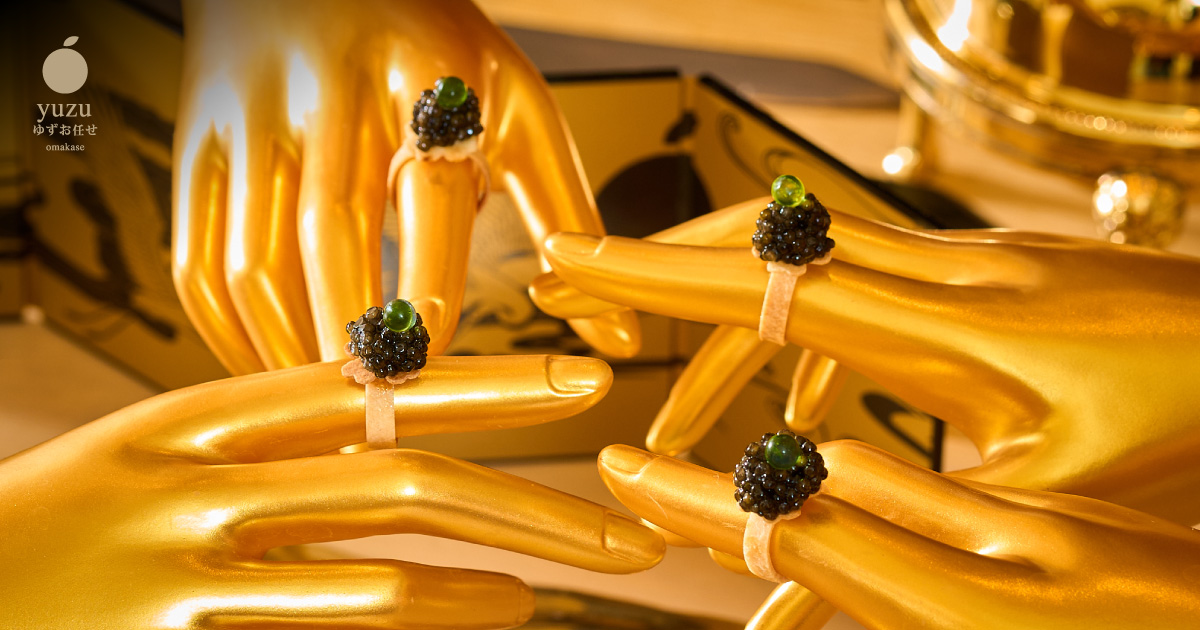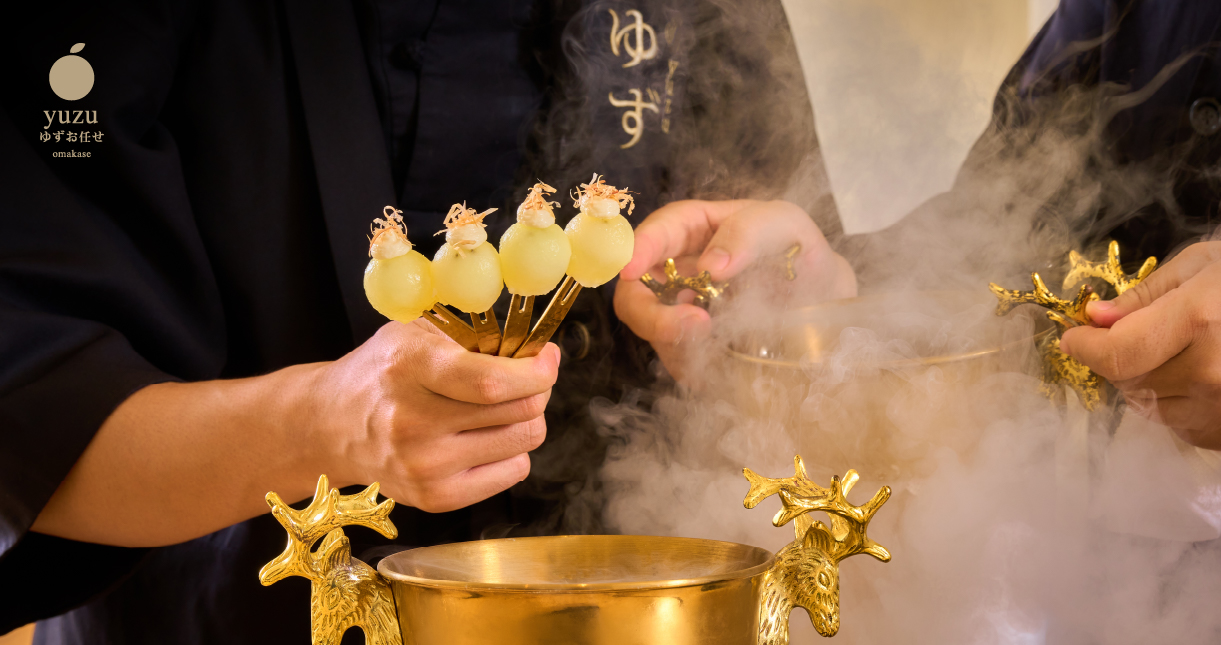
Celebrating Japanese Festivals with Traditional Foods
Introduction: Japanese Festivals and Their Culinary Traditions Japanese festivals, or matsuri, are not just vibrant celebrations of culture, history, and spirituality; they also highlight the deep connection between food and tradition. Each festival in Japan comes with its own unique set of traditional foods that are tied to the season, region, and the customs of the event. These foods are much more than sustenance—they carry cultural significance, represent prosperity, and are often believed to bring good fortune.
The World ● 2024 Sep 25
Celebrating Japanese Festivals with Traditional Foods
At Yuzu Omakase, located at 258/9-10 Siam Square Soi 3, 2F Pathumwan, Bangkok, we embrace these traditions by incorporating elements of Japanese festival foods into our omakase menu. Whether it's through the ingredients we source, the techniques we use, or the dishes we serve, Yuzu Omakase celebrates the spirit of Japanese festivals in a refined and luxurious way. Let’s take a look at some of the most significant Japanese festivals and the traditional foods that define them.
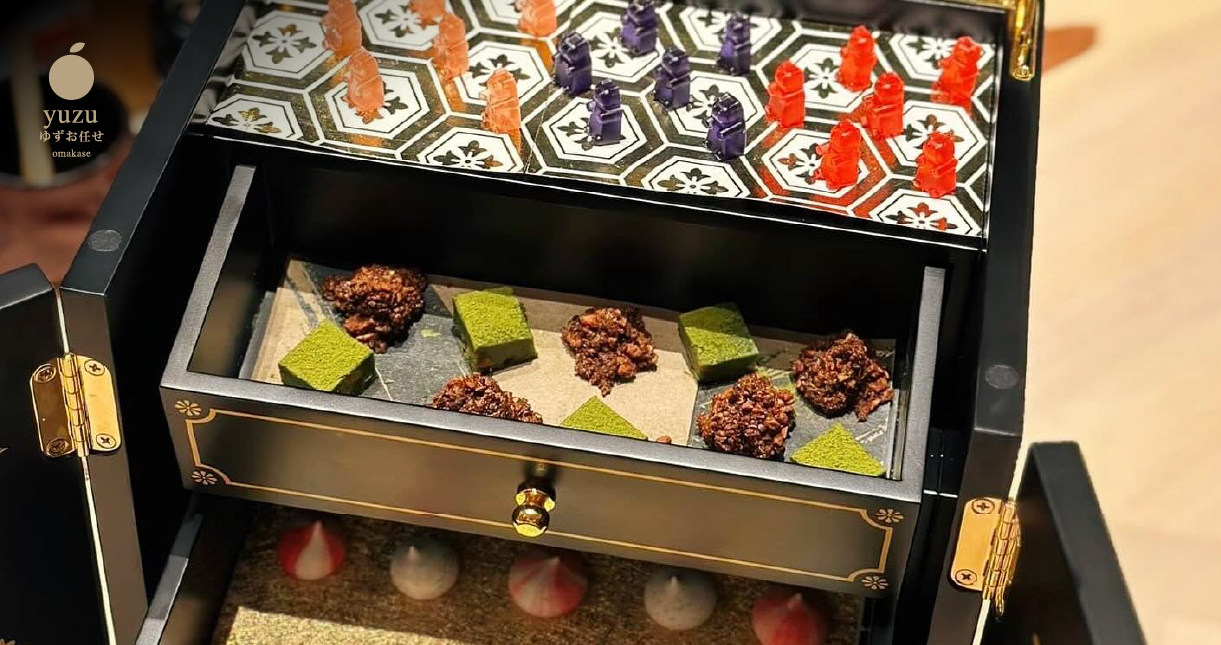
Oshogatsu (New Year): Welcoming the New Year with Osechi Ryori
Perhaps the most important festival in Japan, Oshogatsu, or New Year, is celebrated with a range of special foods known as Osechi Ryori. These dishes are meticulously prepared and beautifully arranged in lacquered boxes called jubako. Each food has a specific meaning, symbolizing health, prosperity, and happiness for the year ahead.
At Yuzu Omakase, we honor the spirit of Osechi Ryori by incorporating symbolic elements into our dishes during the New Year season. For example, our chef may serve Kazunoko (herring roe), which represents fertility, or Kuromame(sweet black beans), symbolizing hard work and good health. These dishes are presented with the same care and precision as traditional Osechi Ryori, but with a modern twist, elevating the dining experience for our guests in Bangkok.
Another key element of New Year celebrations is Ozoni, a clear soup with mochi (rice cakes) and seasonal vegetables. While Ozoni is traditionally served in Japanese homes, we occasionally incorporate mochi into our omakase courses, creating a fusion between traditional festival foods and our fine dining concept.
Hinamatsuri (Doll Festival): Delicate Sweets and Sushi for Girls' Day
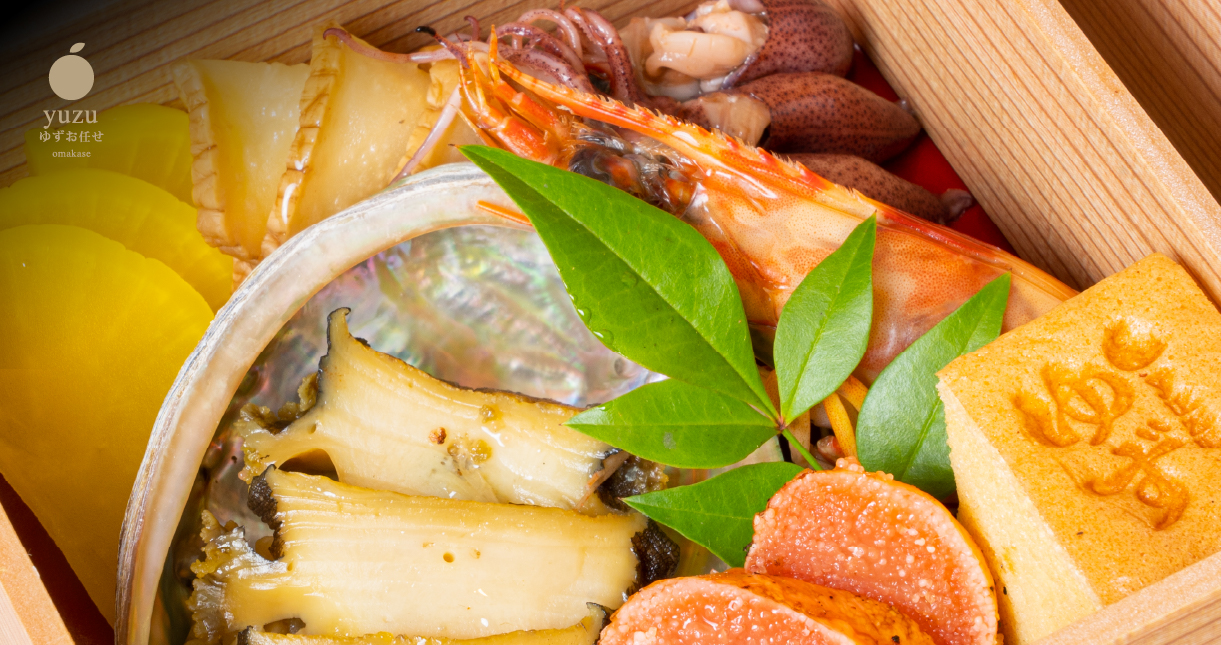
Hinamatsuri, or Girls' Day, is celebrated on March 3rd in Japan. Families with young daughters display ornamental dolls and enjoy a meal that features a variety of symbolic foods. This festival highlights foods that are both beautiful and delicate, much like the dolls themselves. Some of the key foods enjoyed during Hinamatsuri include chirashizushi, a colorful scattered sushi, and hishimochi, a layered rice cake.
At Yuzu Omakase, we often create special chirashizushi dishes during the Hinamatsuri season. Our version features a bed of perfectly seasoned Japanese sushi rice, topped with a rainbow of fresh seafood, including tuna, salmon, and ikura (salmon roe). The vibrant colors of this dish mirror the joy and brightness of the festival, while the combination of fresh fish and carefully crafted rice reflects the precision and artistry of Japanese cuisine.
We also pay homage to hishimochi by offering a dessert course inspired by its pastel pink, green, and white layers. This dessert is made with soft mochi and flavored with seasonal fruits, providing a sweet and visually stunning end to the omakase meal.
Tanabata (Star Festival): Symbolic Summer Treats
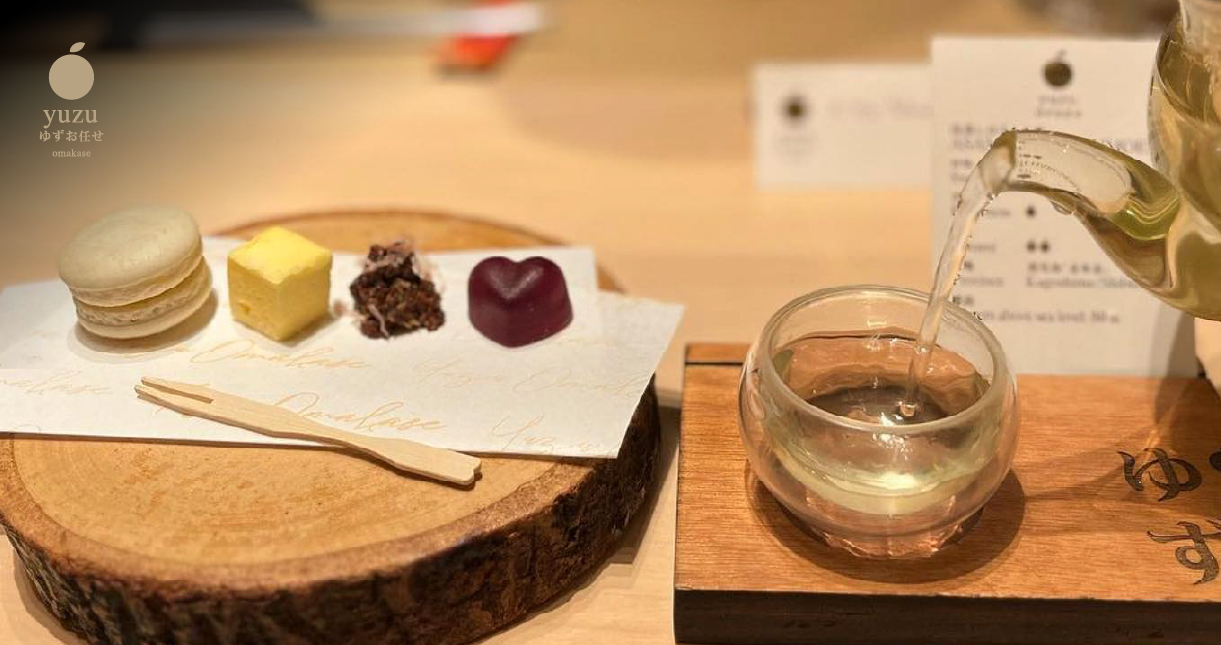
Tanabata, or the Star Festival, is celebrated on July 7th and commemorates the reunion of two celestial lovers, Orihime and Hikoboshi, who are separated by the Milky Way. During this festival, people write wishes on colorful strips of paper and hang them on bamboo branches, hoping their dreams will come true. The foods enjoyed during Tanabata are typically light and refreshing, perfect for the summer season.
One of the traditional foods associated with Tanabata is somenn—thin, white noodles that symbolize the threads woven by Orihime. At Yuzu Omakase, we incorporate somenn into our summer omakase courses, serving them cold with a light dipping sauce made from soy and citrus. This dish is not only delicious but also reflects the cooling and refreshing nature of summer foods in Japan.
Another popular food during the Tanabata festival is yokan, a sweet jelly dessert made from red bean paste and agar. While yokan is a traditional sweet, at Yuzu Omakase, we create a more modern interpretation using seasonal fruits and natural flavors, offering our guests a refreshing way to end their meal.
Obon (Festival of the Dead): Honoring Ancestors with Festive Foods
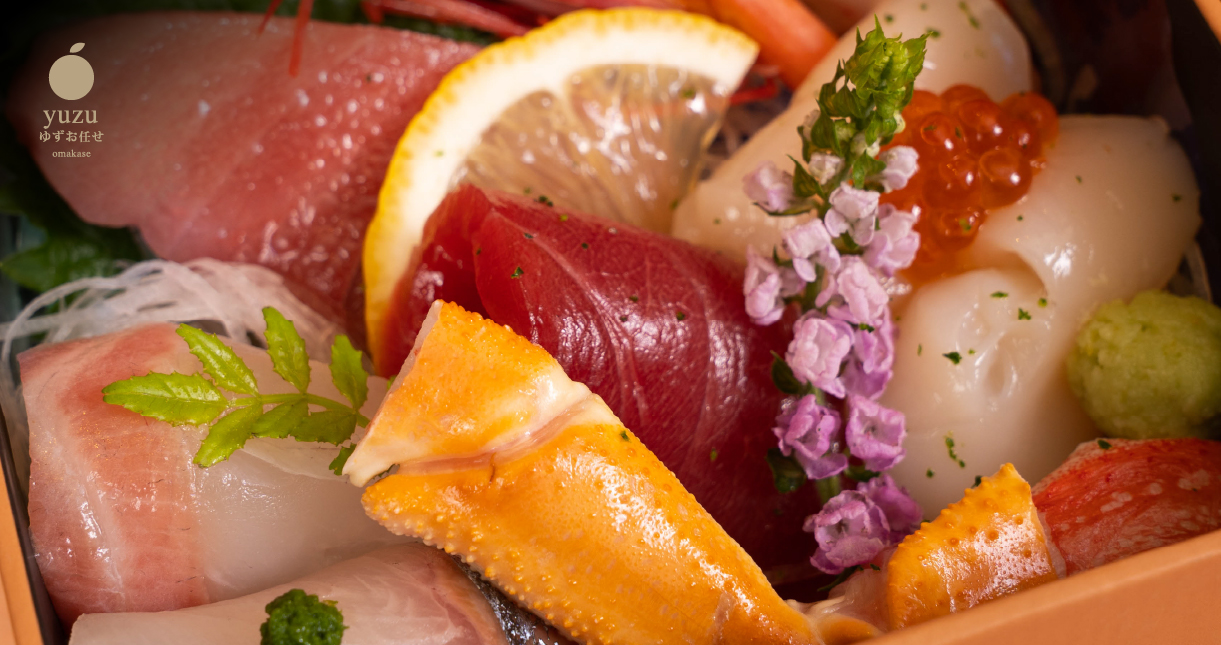
Obon, held in mid-August, is one of Japan’s most significant Buddhist festivals. It is a time when families come together to honor their ancestors through rituals, prayers, and offerings of food. While Obon is a spiritual celebration, it is also filled with festive foods that bring people together, such as takoyaki (octopus balls) and yakitori (grilled chicken skewers).
At Yuzu Omakase, we interpret the spirit of Obon by serving traditional Japanese grilled dishes that evoke the flavors of yakitori and other street foods commonly enjoyed during this festival. One of our signature dishes during this time is grilled Taraba Crab, prepared over an open flame and served with a tangy dipping sauce. This dish is a luxurious take on the grilled foods traditionally enjoyed at Obon festivals.
We also offer Tai (sea bream) as part of our omakase menu during Obon. Tai is considered a symbol of good luck and is often served during celebratory occasions in Japan. Our chef prepares Tai sashimi with precision, ensuring that the freshness of the fish is preserved in every bite.
Shogatsu (Lunar New Year): A Time for Mochi and Seasonal Delicacies
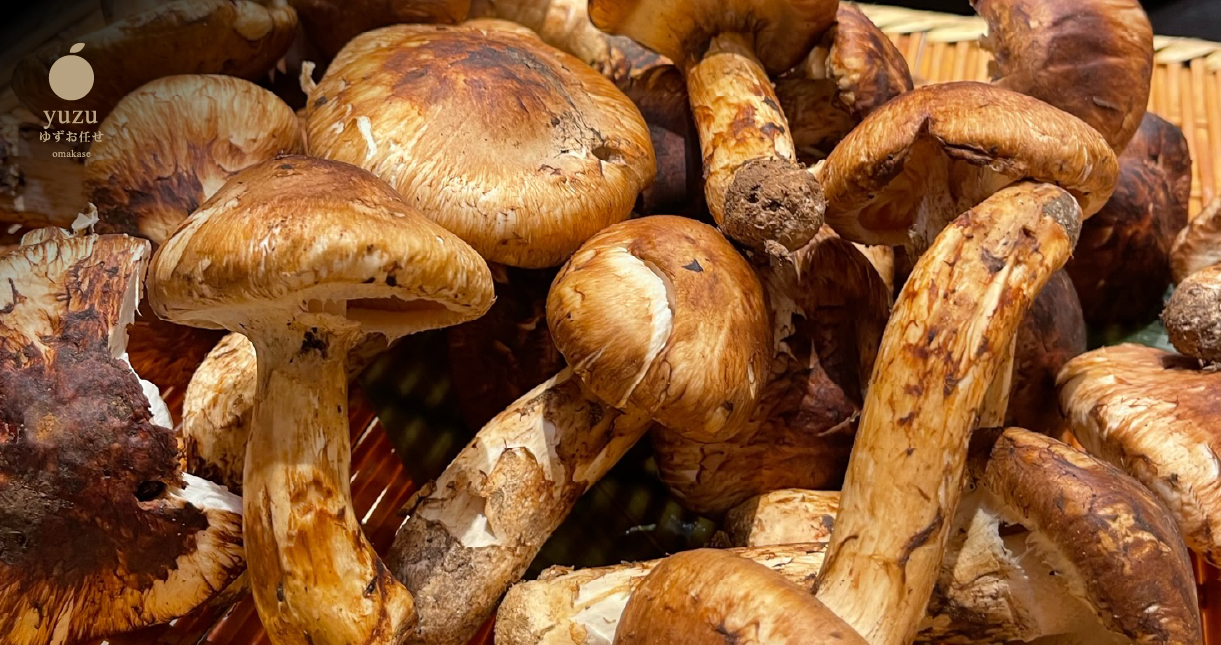
Though Shogatsu (Lunar New Year) is not as widely celebrated in Japan as the Gregorian New Year, it is still an important festival in certain regions, particularly among families with Chinese heritage. Mochi once again takes center stage during Shogatsu, symbolizing strength and good fortune. Yuzu Omakase incorporates elements of Shogatsu foods into our omakase courses, particularly through the use of seasonal ingredients and traditional sweets like daifuku (mochi filled with sweet red bean paste).
During the Lunar New Year, our chef often prepares a special mochi dessert with a luxurious twist, featuring fillings like matcha cream or seasonal fruits. This dessert is served alongside other celebratory foods, offering our guests a taste of traditional Shogatsu flavors in a modern, refined presentation.
Autumn Festivals: Embracing Harvest with Matsutake Mushrooms and Chestnuts
Japan's autumn festivals, such as Shichi-Go-San and Tsukimi (Moon Viewing Festival), celebrate the harvest and the changing of the seasons. During this time, traditional Japanese foods often feature seasonal ingredients like matsutake mushrooms, chestnuts, and sweet potatoes.
At Yuzu Omakase, we embrace the flavors of autumn by incorporating these seasonal ingredients into our omakase courses. Matsutake mushrooms, prized for their earthy aroma and rich flavor, are often grilled and served as part of our autumn menu. Their deep, umami flavor pairs beautifully with the more delicate elements of our omakase, such as fresh sashimi or grilled seafood.
We also feature desserts made with chestnuts and sweet potatoes during this season. These traditional ingredients are transformed into modern, sophisticated dishes that offer a perfect balance of sweetness and texture. Whether enjoyed as part of a multi-course meal or as a standalone dessert, these seasonal flavors bring the spirit of Japan’s autumn festivals to the heart of Bangkok.
Conclusion: Celebrating Japanese Festivals at Yuzu Omakase
At Yuzu Omakase, we are proud to celebrate the rich culinary traditions of Japan's festivals. From the symbolic foods of Oshogatsu to the refreshing treats of Tanabata, each dish on our omakase menu reflects the seasonal and cultural significance of Japan's most cherished celebrations. Our chef takes great care in crafting each dish with respect to these traditions while incorporating modern techniques and luxury ingredients to elevate the dining experience.
Whether you’re visiting during a special festival season or simply looking to experience the best of Japanese food culture in Bangkok, Yuzu Omakase offers an unforgettable journey through the flavors and traditions of Japan. Book your seat online today and join us in celebrating the beauty and richness of Japanese festivals with traditional and modern dishes alike.

RELATE



